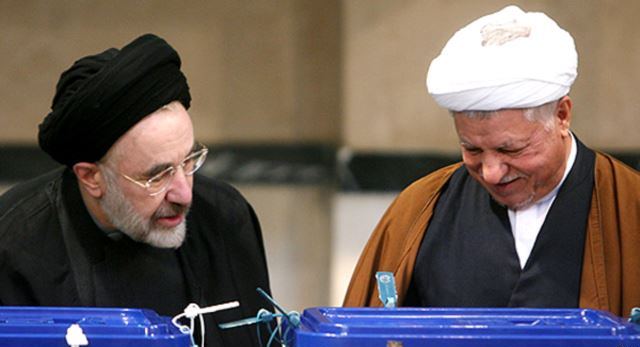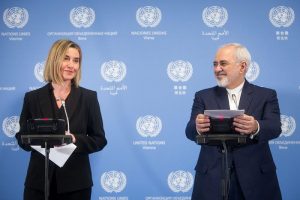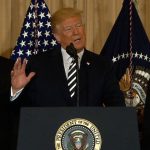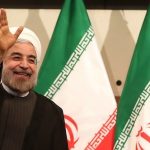by Farideh Farhi
It is fair to say that since Akbar Hashemi Rafsanjani’s disqualification, a good section of the Iranian pubic has been in a state of shock and silence. A friend who is also a keen observer of Iranian politics described the mood not only in Tehran but also the capital of a province she visits often as eerie silence.
The excitement that was generated by Hashemi Rafsanjani’s candidacy was unexpected, perhaps even to him. In all likelihood, it was also the reason for his disqualification. Iran’s conservative establishment would have preferred yet another Rafsanjani defeat at the polls as in 2005. But the potential for voter mobilization along the lines of 2009 made that route too risky.
So now the question of what to do must be on the minds of people who identify with the reformists and centrists. Their two key leaders — former presidents Mohammad Khatami and Hahsemi Rafsanjani — have been silent on this since the disqualification.
Voter silence may eventually transform into a turning of the back against the electoral process. It will not be an organized boycott but an effective lowering of the participation rate, particularly in large cities, to which the conservative establishment will probably respond by announcing “a higher than expected” turnout rate along the lines of the “epic” event so desired by Iran’s Leader Ayatollah Ali Khamenei. This is what happened in the rather lackluster 2012 parliamentary election when a participation rate of 66.4 percent was announced to a skeptical and yet indifferent electorate at least in Tehran.
And it is precisely this possibility that compels the reformist and centrist political leaders to mull alternatives. After all, low participation rates have never posed a challenge to the conservative political establishment. Given the solid support from a committed base, lower participation rates can even ensure a conservative victory without ballot box-tampering if the conservatives can agree on a candidate — which as I will discuss hasn’t been the case so far — forcing them to face some decisions of their own in the next two weeks.
But going back to the self-identified reformist and centrist organizations and individuals, in the coming two weeks the two former presidents must decide whether to let the scenario that played out in the 2012 parliamentary election — involving essentially a competition between hardliners and traditional conservatives — to reoccur, or gamble on the energy that was generated for Hashemi Rafsanjani’s candidacy in support of one of the two non-conservative candidates: former nuclear negotiator Hassan Rowhani and former first vice president Mohammadreza Aref. Given their lack of name recognition throughout the country everyone knows that for either of these candidates to have any chance one probably has to withdraw in favor of the other and then receive the public backing of the two former presidents.
In other words, the silence that has followed Hashemi Rafsanjani’s disqualification is underwritten by a turn of the eye towards what these two politicians will call upon their supporters to do.
A call for a boycott is out of the question for Hashemi Rafsanjani who is still the chair of the Expediency Council. It is also highly unlikely for Khatami who knows that such a move would become an occasion for the further purging of reformist parties and organizations from the political system.
The two former presidents can tell their supporters to follow their conscience and vote for anyone they wish or actively try to use their clout in an attempt to shape the election’s outcome. After all, Khatami had already corralled the reformist support behind the centrist Hashemi Rafsanjani. Couldn’t the two former presidents do the same for either Rowhani or Aref — both of whom have performed well in their television appearances so far and staked positions on the economy and foreign policy that are similar to Hashemi Rafsanjani’s while being highly critical of the direction Iran has taken in the past eight years?
Uncertainty in response to this question is the reason for hesitance. Convincing supporters — as well as themselves — that the conservative establishment, which was willing to disqualify one of the fathers of the revolution, will not use other schemes to ensure a conservative presidency will be difficult. The only argument against this deep skepticism is yes, the other side might cheat, but non-participation may ensure its victory without cheating or any challenges.
Electoral mobilization has been the centrists’ and reformists’ only successful instrument against the conservative establishment over the years. True, the last successful mobilization turned into a disaster when post-election protests led to repression and the further securitization of Iran’s political environment. The tired and economically pressured Iranian population certainly has no stomach for a repeat. But throwing away the only instrument that societal forces who have been calling for change have to display their existence — and yes, potential power with — in fear of a repeat of a previous experiment’s consequences is tantamount to prematurely surrendering to authoritarian powers who are perfectly happy if voters mostly stay home.
This argument, while persuasive to me, will nevertheless have a hard time countering legitimate worries that electoral participation in support of either of these two candidates will be pocketed by the conservative establishment as a vote of confidence in the Islamic Republic without giving the centrists and reformists a fair chance.
Still, the decision by both Hashemi Rafsanjani and Khatami — to either not support anyone or clearly back one candidate — is yet to come. There is no reason for them to rush either. In the next two weeks of campaigning getting double air-time for two candidates with similar views that are not generally shown on state television is better than getting air time for only one. But in a week or so the pressure on them will increase to make their move. Already, the reformist Shargh Daily is reporting on a plan by the former presidents’ “advisors” to give support to a slate that has one of the two candidates at the top and the other campaigning as his first vice president in case of a win. The challenge of figuring out who should be at the top, the argument goes, will be resolved by the extent of support each can garner after his performance in the three television debates among the eight candidates that will begin this Friday and end next Friday.
There are two reasons why these former presidents and their supporters have not yet fully abandoned strategizing for a possible reformist/centrist victory. I already mentioned the first reason and it’s related to uncertainty about the length to which the conservative establishment will go to ensure a conservative victory. The argument that the system needs a “clean” election to erase the memory of the botched 2009 election works in favor of trying to mobilize the voters in order to force or impose an election day win.
But there is also a second reason that’s related to the disarray within the conservative camp itself. As I previously mentioned, the conservatives have been unable to consolidate support behind a single candidate. In fact, as of today two of their candidates — Saeed Jalili and Ali Akbar Velayati — have received organizational support from the two poles of the conservative spectrum. Jalili was formally endorsed by the hardline Steadfastness Front (Jebheye Paydari, which is sometimes translated as the Constancy Front) while Velayati was formally endorsed by the Followers of the Imam and Leadership Line Front, which consists of 14 traditionally conservative organizations and parties.
At this point, despite Jalili’s assiduous efforts to portray himself as such — because believe it or not, trying to convince people that one has the Leader’s support in Iran is an art that is practiced by quite a few people in order to push one’s self ahead — it is not clear which one of these two candidates will by Election Day be the favorite of the “system”, called nezam in Iran, or more accurately, Khamenei’s favorite. If the 2012 parliamentary election is any guide — and parliamentary elections occurring before the presidential race with no running sitting president have been good guides in the past — the candidate of the traditional conservatives should do better or become the favorite. But so far this decision doesn’t appear to have been made.
In any case, the interesting aspect of this election may be that for these two candidates even becoming the favorite may not ensure a win if there is no substantial fraud on Election Day. The so-called mashin-e entekhabat (electoral machine), an army of loyalists the system can mobilize in support of a particular candidate even at the last minute, is at most 6 to 7 million people. This is not sufficient for a win even if only 50 to 55 percent — a historical low only recorded for elections in which either a sitting president was seeking reelection (as in 1985 or 1993) or the victory of a specific candidate was assured like in 1989 — of the announced 50 million eligible voters participate. To be sure, both Velayati and Jalili can try to woo votes beyond the machine. But they do not have much in the way of independent organization and given their lack of personal charisma, and the fact that neither of them has held positions related to domestic policy making, the chances of their success is low. (Again, if the assumption is that the Interior Ministry, which is in charge of conducting the election, will inflate the participation rate, it’s unlikely to substantially tamper with votes in favor of one candidate or another).
The only conservative candidate who can add the machine vote to his own personal following is the more popular Tehran mayor Mohammad Baqer Qalibaf, who has so far garnered no support from conservative organizations and parties. But Qalibaf has been organizing in almost every city and even quite a few villages throughout the country; he has been practically planning and running for the presidency for the past 8 years.
Yet his basic problem remains with the electoral machine vote, which in the 2005 election shifted in the last minute and favored Mahmoud Ahmadinejad, leaving him with only 4 million votes — and fourth position — out of the 28 million votes cast. A decision made to shift the machine towards Qalibaf will probably be dependent on the assessment of how well the reformist/centrist might do. If the election ends up going to the second round with no one mustering 50 percent plus one vote, then Qalibaf is probably the strongest candidate against the reformist/centrist choice — again provided the absence of a systemic will to ensure a conservative win at any cost either in the first round or by pitting two conservative candidates against each other in the second round.
At this point, all I can say is that betting on the win of any given candidate — or point of view — seems premature. It is true that some candidates such as former IRGC commander Mohsen Rezaie, former minister Mohammad Gharazi, or even former speaker of the parliament Haddad Adel have no chance, but some of the other candidates and their supporters will still have to make choices and react to the choices made by others. The reformist and centrist leaders’ choice to become more aggressive players at the immediate political and tactical level and risk the possibility that the electorate will not follow is a gamble that, if successful, will again force the multitude of conservative constituencies and candidates to revisit their calculations, formulate new tactics and tricks, and even re-arrange their alliances.





